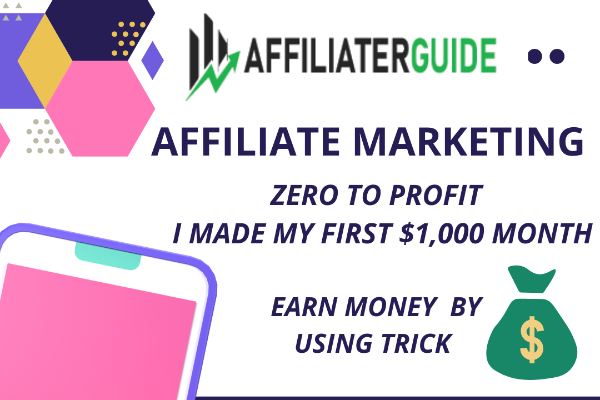Start With an Engaging Hook: Something relatable like how making money affiliate marketing seems so hard.
Data Trained Till: Oct 2023 Problem Statement – Highlighting the usual struggles of beginners, e.g., low conversions or selecting the wrong products.
Article ‘Promise’: Apply a little promise throughout the article that this guide will walk readers through every step you took to your first $1,000 month with specific steps they can take
Choose a Profitable Niche
Step 1: Explain the difference between high demand, low competition niches and why these are crucial for profitability
Step 2: Tactic use keyword research tools (for example Google Keyword Planner, Ahrefs) and also Google Trends to seek out lucrative niches.
Step 3: Choose Your Niche describe what niche you selected and how you assessed its potential?
Select the Appropriate Affiliate Programs
Affiliate Programs :Talk a little bit about the typical programs like CPA (Cost Per Action) and CPS (Computed Per Sale).
Choose Your Programs: List the top few criteria such as commission amount, cookie duration and reputation of programs.
Example Programs: Identify a few programs that have performed well for you (like Amazon Associates or ShareASale) and share what works with them.
Develop a Content Plan that Converts
Content Types That Convert: Describe what types of content (like product reviews, comparisons, or listicles) attract traffic and clicks?
Minimum SEO optimization basics: where you should put the keyword (title, headings, URL, meta description) and why it matters?
Example Content Framework: Walk through how you created your successful post that converted including intro- CTA
Unlock the Power of SEO for Organic Traffic
Keyword Research: Describe how to find long-tail keywords; suggest using Uber suggest, Ahrefs or Google Keyword Planner.
On-Page SEO: You need to explain the basics: title tags, meta descriptions, header tags (H1, H2), and internal linking.
Off-Page SEO Hints: Give a handful of wish hyperlink techniques (e.g., visitor posting, influencer outreach) to enlarge authority.
Create Content Based Around User Intent and Experience
Write for User Intent: Write to give solutions to what your audience is searching for
To read more : Use small paragraphs, bullet points wherever possible, and add appropriate images/infographic/screenshots as needed.
Add Multimedia: As previously mentioned, add videos or infographics images that can reduce the bounce rate, and much more.
Create an Email List to Create More Conversions
The Email Land: Discuss the importance of email marketing to assure potential buyers are still engaging with your business.
List Building: Include opt-in forms on your most trafficked pages and Give away a free guide or mini-course.
Example Sequence of Emails: Describe how an email series that builds trust and reacquaints customers one step at a time to products in a natural way.
Monitor, Experiment and Refine Your Campaigns
Demonstrate setting up and analyzing metrics such as bounce rate, conversion rates, and page views using Google Analytics
A/B Testing: Short summary of using A/B testing on CTAs, headlines and product placements to increase conversion rates.
Performance-Based Changes: Make any adjustments that you performed after analyzing the performance data and how this affected earnings.
Consistency and patience
Consistency is Key: Tell readers that having a publishing routine can help them stay engaged.
Fighting The Resilience: Give us at least one tip on how to stay motivated even if the results are not from day one.
Focus on celebrating Wins: While this can be a standalone blog post, encourage readers to celebrate small wins as they add up!
Conclusion
Takeaway: A quick summary of the steps and strategies that will help readers see the process from beginning to end.
Closing Send-off: Remind the reader that making your first $1,000 is possible through focus, strategy and consistency.
Call-to-Action (CTA): Ask readers to subscribe to your newsletter or leave a comment on how their journey has been, or share the article.



